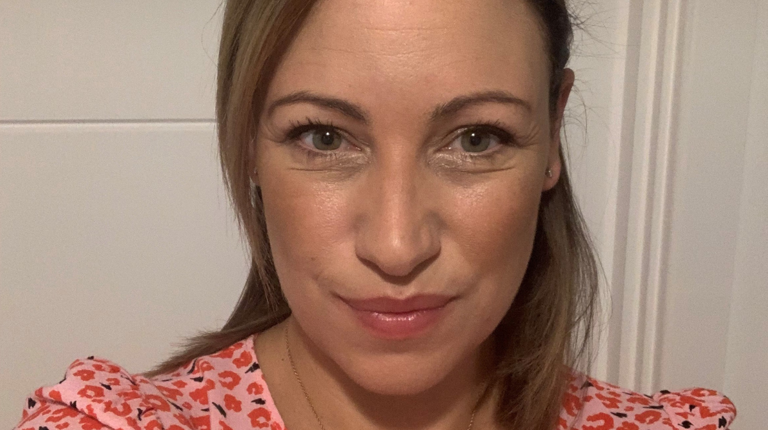Four years ago, Dr Laura Rylah took what she believes was a "positive step" off the O&G specialty training programme to take up a specialty doctor post.
Laura, who won the gold medal in the year she completed her MRCOG, decided to choose a SAS career after weighing up the practicalities of completing the training programme whilst also doing what was best for her family.

"I haven't regretted it one day since I made the move four years ago."
After witnessing a caesarean birth during a clinical attachment whilst at medical school, Dr Laura Rylah discovered her love for obstetrics and gynaecology. As such Laura decided to pursue a career in O&G by embarking on the O&G specialty training programme. Progressing through the specialty training years, Laura completed the MRCOG, winning the gold medal for the highest scoring candidate in their first attempt of the MRCOG Part 3 exam.
However, some of the practicalities of the training programme, including the annual move around the deanery and not having fixed working days, no longer suited Laura's evolving personal life. It was during her ST5 year that Laura decided to consider what career pathway would be best for her career as well as for her family.
"As my time in training progressed, my personal life changed hugely. I got married and we bought a house. We now have three children … I was so certain that my love was the [O&G] specialty that I didn't want to leave, but I needed to find something that was [going to] adapt to my life."
Reflecting on her options by beginning discussions with her trust, talking to SAS doctors and engaging with the College's information on SAS doctor careers, Laura decided to transition from the training programme to pursue a career as a specialty doctor.
As some people were confused by her decision to leave the training programme, Laura is keen to educate the O&G community that there are many reasons why someone may choose to take up a SAS post. Ultimately, choosing a SAS career provided Laura with the stability and consistency the training programme could not offer while allowing her to remain in O&G.
"I also think, unfairly, specialty doctor roles used to be thought of as positions often taken reluctantly by people who hadn’t gained training numbers or exams, but in fact it is a viable option open to doctors whatever their circumstances are."
"I think I confused a lot of people because I was in the desirable position of having both a training number and the exams, but for me the priority was to continue working in Women’s health but in a role that suited my family life better. I have never felt like I have 'given up' something, rather that I have moved aside to something different."
Now that Laura has been in a specialty doctor role for four years, she has been able to experience first-hand the opportunities that a SAS post has to offer.
For instance, Laura is the co-lead for medical students and a member of the human factors faculty, and she has been involved in setting up a specific mental health antenatal clinic in her trust. In her own time Laura supports doctors in training who are working towards their MRCOG Part 3 exams and notes that this was one of the hardest times in her career.
Laura acknowledges that developing her interest in medical education through these additional roles may not have been possible while on the training programme due to the annual rotation around the deanery. Therefore, Laura has been able to achieve job satisfaction out of the opportunities that have arisen by being in one place for a longer period of time.
While Laura is content in the variety of roles she currently holds, and is enjoying exploring her interests and developing her skills, she also notes that there are even more opportunities for development available to SAS doctors. These include completing ATSMs, working towards the Certificate of Eligibility for Specialist Registration (CESR) and the creation of specialist posts for senior specialty doctors.
"Actually there [are] huge opportunities to be had [as a SAS doctor]. It's very much a career that you can build on and make of what you want and that really appealed to me."
In collaboration with NHS Employers, Health Education England and the Academy of Medical Royal Colleges, the BMA published the SAS charter. The aim of the SAS charter is to support SAS doctors with their development and gain access to opportunities.
The community of SAS doctors is growing, with SAS and LE doctors set to be the largest component of the medical workforce by 2030 (GMC, 2023). Laura's advice to aspiring SAS doctors is to consider what their career goals are, why they are seeking a change and to find out if being a SAS doctor would meet these expectations.
For doctors new to SAS posts, Laura highlights the importance of connecting with other SAS doctors, to maintain knowledge of the available opportunities. For instance, in Laura's trust, they hold cross-specialty SAS teaching days four to six times a year.
Laura also notes that having SAS doctors in senior roles is beneficial, to ensure SAS needs are acknowledged and included in discussions. As the Wessex representative on the national RCOG SAS and LED Committee, Laura shares information from the Committee with her local peers while also feeding back to the Committee what SAS doctors cross-specialty are doing in the Wessex region.
"I think having all the SAS doctors united in a trust is really helpful … because then you feel like you're part of a community."
It is really important that doctors are aware of the support systems in place and the opportunities available to SAS. Being a SAS doctor is a viable and enjoyable alternative career pathway.
"I'd hate for anyone to leave the specialty because of the constraints of a training programme and knowing that being a SAS doctor isn't a dead-end career. It's amazing."


RCOG Membership
We work to support obstetricians and gynaecologists at a local, national, and international level in our mission to improve the health of women and girls. Find out how you can become part of our membership and the benefits that come with it.

